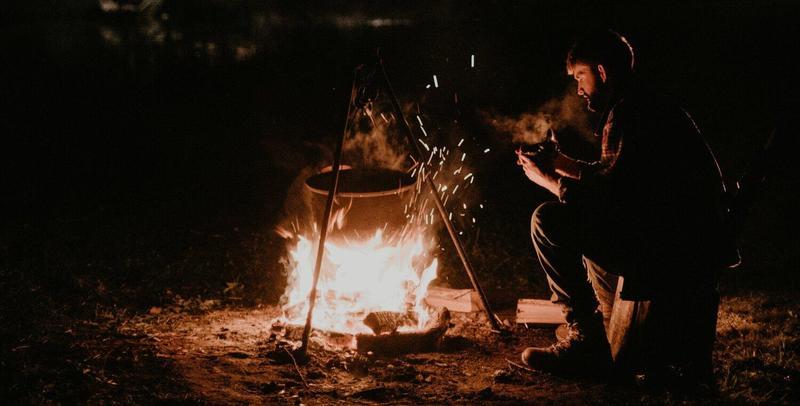Prevent burn-out according to this ancient Chinese concept
Prevent burn-out according to this ancient Chinese concept
In Classical Chinese Medicine, the Three Treasures — which are the three most important aspects to cultivate if we are to achieve a state of radiant health — are called Jing (life force), Qi/Chi (energy) and Shen (our emotions or link to our higher purpose / spirit). To help better understand this, the image that is most commonly used is that of a burning pot of nourishing soup:
- Qi/Chi is both the soup and the pot, that keeps it in place
- Shen is the vapour arising from the pot, the subtle essence of the soup
- And Jing is the fire that heats the pot
This means that, without a strong Jing, our burning life-force fire, we have no energy for our day-to-day body and mind functions (Qi) and certainly our management of emotions and link to our higher purpose (Shen) will be out of balance.
Extreme cases of depleted Jing is what in the West we call a state of burn-out.
What depletes the Jing?
In today’s world, arguably the most widespread ‘thief’ of Jing is stress. Stress eats away our energy (Qi) and when that is gone, we start using our Jing. Our deep reserves of precious vitality therefore become used up by negative emotions (anger, fear). People with wasted Jing will tend to be fatigued easily, have a tendency to be depressed and complain about difficulty sleeping while showing an apparent difficulty to overcome their lack of vitality.
Other aspects that classically deplete the Jing are, for women, childbirth and, for men, excessive sexual activity.
Can we rebuild our Jing?
Jing comes from two sources: pre-natal (the life force which we inherit from our ancestors) and post-natal (which we gather and build through our food and lifestyle).
Our pre-natal Jing - imagine it like a sort of bank account, inherited at birth - cannot be rebuilt according to ancient Chinese thought. It is a treasure that we should hold dearly and a reminder that Nature and our ancestors have given us the energy we need for our life purpose.
However, we live in a world that decisions away from our purpose are usually the easiest to make. So it is with no shame that we realise that we have ‘wasted’ away this energy. Most of us have, in some way or another, in the industrialised - and now digital - world.
Which leads us to the good news: post-natal Jing, which we build from the accumulation of everyday’s unused Qi / energy (basically the quality of what we breathe and eat minus the energy we spend), can be rebuilt through quality, deeply nourishing foods and a mindful, active and sustainable lifestyle.
How can we improve our Jing reserves?
In Classical Chinese Medicine, the idea of Jing is associated to the pre-world-as-we-know-it darkness, which is full of potential. This darkness is not the ‘night’ as opposed to the ‘day’, but rather the ‘night’ before there was something like ‘night/day’ (or yin/yang). Jing is seen as a seed in the deep darkness of the earth - waiting to experience night/day, winter/summer -, waiting to be a full plant and holding in itself all the ability and energy to do so. So in general, the Chinese held black foods as an effective source of Jing or tonics for the Kidneys, where Jing is believed to be stored.
In this way, Chinese doctors have been prescribing the use of herbs such as He Shou Wu and Rehmannia (both roots) as an effective source to replenish Jing.
Other foods to increase Jing include:
GOJI BERRIES
As a tea or porridge topping (soaked)
EGGS
Preferably pastured eggs that you can get from a local farm.
SESAME SEEDS
Preferably black, which you can lightly toast to extract its beneficial oils.
PINE NUTS
They are delicious as a porridge topping or just on their own, very lightly roasted.
To avoid a more permanent burn-out, it is a good idea to avoid a daily burn-out.
This is the notion that we should not take ourselves to extremes, that we can eat and live mindfully and deliberately make our positive choices. This will enable us to be in a state of mental clarity and physical agility, so as to make increasingly better decisions, as time goes by. If we do overextend ourselves, then we must make time for deep rest, avoiding the easy fix that coffee and other stimulants seem to offer. Alternatives to this include a soft walk in Nature, for example, noticing how energising this can be, or seeking to use other plants (instead of coffee beans!) that are know to provide greater vitality, without the inevitable crash a few hours later.
To avoid a more permanent burn-out, it is a good idea to avoid a daily burn-out.
This general approach will build our energy reserves, and we can recover from years of stress and therefore, more and more, become better able to cope with that same stress. By concentrating on building this life force of potential, life can be more intense and the days will be lived more fully and nights will provide deeper rest.
Here we can start a positive cycle, where this great inner fire is set to burn strong again (remember when we were children?), and hopefully our daily energy (Qi) and sense of higher purpose (Shen) can be in greater balance towards a state of radiant health. Far from burning-out, we seek to burn-bright.
Be the first to post a message!
